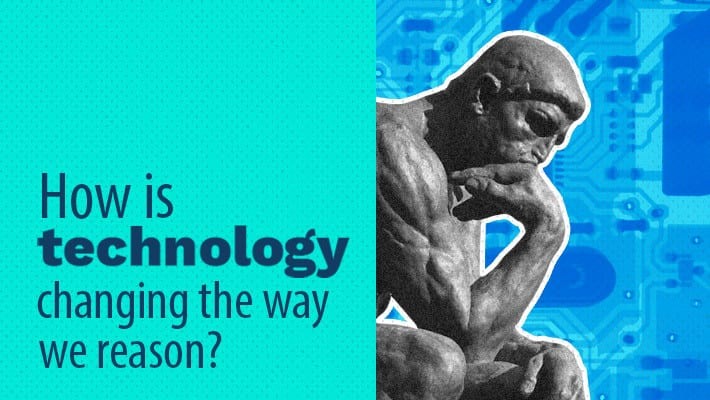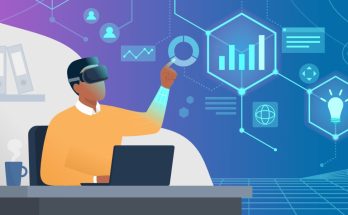The pervasive presence of technology in our daily lives has transcended mere convenience, fundamentally altering the very architecture of human cognition. From the ubiquitous smartphone in our pockets to the complex algorithms shaping our online experiences, technological advancements are not simply tools we use; they are increasingly becoming integral to how we perceive, process, and interact with the world around us. This profound transformation isn’t a passive phenomenon but an active reshaping of our neural pathways, attention spans, memory retention, and even our capacity for deep, reflective thought. Understanding these shifts is crucial as we navigate an increasingly digitized existence.
One of the most immediate and widely discussed impacts of technology on our thinking concerns **attention and focus**. The constant stream of notifications, alerts, and endless feeds from social media and news platforms has cultivated an environment of perpetual distraction. Our brains are increasingly being trained to switch tasks rapidly, to skim rather than delve deeply, and to seek instant gratification from novel stimuli. Research, particularly in cognitive neuroscience, suggests that this constant “attention switching” can reduce our ability to sustain focus on a single task for extended periods. While some argue this fosters a new form of “parallel processing,” it often comes at the cost of deep concentration, critical analysis, and the ability to engage in prolonged, complex problem-solving. We become adept at sifting through vast amounts of information quickly, but perhaps less capable of truly absorbing and synthesizing it.
The way we access and store information has also undergone a radical transformation, directly impacting **memory and knowledge retention**. Historically, memorization played a more central role in learning. Today, with the entirety of human knowledge accessible at our fingertips via search engines, the emphasis has shifted from remembering facts to remembering *how to find* facts. This externalization of memory, often termed the “Google effect” or “digital amnesia,” means we are less likely to commit information to long-term memory if we know it’s readily available online. While this frees up cognitive resources for other tasks, it raises questions about the depth of our understanding and our capacity for independent critical thinking when deprived of immediate access to external knowledge bases. Our brains are becoming more adept at navigating information landscapes but may be less proficient at internalizing and recalling specific data points.
Beyond individual cognitive functions, technology is reshaping our **social cognition and emotional intelligence**. Constant connectivity, particularly through social media, creates curated realities where individuals present idealized versions of themselves. This can foster a culture of comparison, potentially leading to increased anxiety, depression, and feelings of inadequacy, particularly among younger generations. The nature of online communication, often devoid of non-verbal cues present in face-to-face interactions, can also impact our ability to interpret subtle social signals, potentially diminishing empathy and nuanced understanding in real-world relationships. While technology facilitates connection across vast distances, it can paradoxically contribute to feelings of isolation if not balanced with genuine human interaction.
However, the influence of technology on our thinking is not solely characterized by negative impacts. It has also ushered in unprecedented opportunities for **enhanced learning, problem-solving, and creativity**. Digital tools provide access to diverse perspectives, interactive learning environments, and powerful analytical capabilities that were unimaginable just a few decades ago. Online courses, virtual reality simulations, and AI-powered educational platforms offer personalized learning experiences, adapting to individual paces and styles. Complex data sets can be analyzed and visualized with sophisticated software, leading to insights that would be impossible through manual methods. For instance, architects and designers can use generative design algorithms that expand creative possibilities far beyond human intuition alone. This augmentation of human intellect, where technology acts as an extension of our cognitive abilities, promises exciting frontiers in innovation and discovery.
Furthermore, the rise of **Artificial Intelligence (AI)** represents a new frontier in how technology interacts with and potentially reshapes human thought. As AI systems become more sophisticated in pattern recognition, decision-making, and even creative generation, they challenge us to redefine what constitutes “intelligence” and “thinking.” AI can automate mundane cognitive tasks, freeing humans to focus on higher-order reasoning, strategic thinking, and complex problem-solving. It can also act as a powerful co-creator, generating ideas or solutions that human minds might not conceive independently. The symbiotic relationship evolving between human and artificial intelligence suggests a future where our thinking is increasingly augmented, requiring us to develop new skills in collaboration with intelligent machines.
In conclusion, the impact of technology on human thinking is a multifaceted and ongoing evolution. While it presents challenges to our attention spans, memory habits, and social interactions, it simultaneously offers unparalleled opportunities for learning, creativity, and problem-solving. Navigating this new cognitive landscape requires a conscious and critical approach. It’s not about rejecting technology, but about understanding its influence and intentionally shaping our engagement with it. By fostering digital literacy, practicing mindful technology use, and prioritizing activities that cultivate deep concentration and genuine human connection, we can harness the transformative power of technology to enhance our cognitive capabilities and ensure that our minds remain agile, adaptable, and profoundly human in an increasingly digital world.



